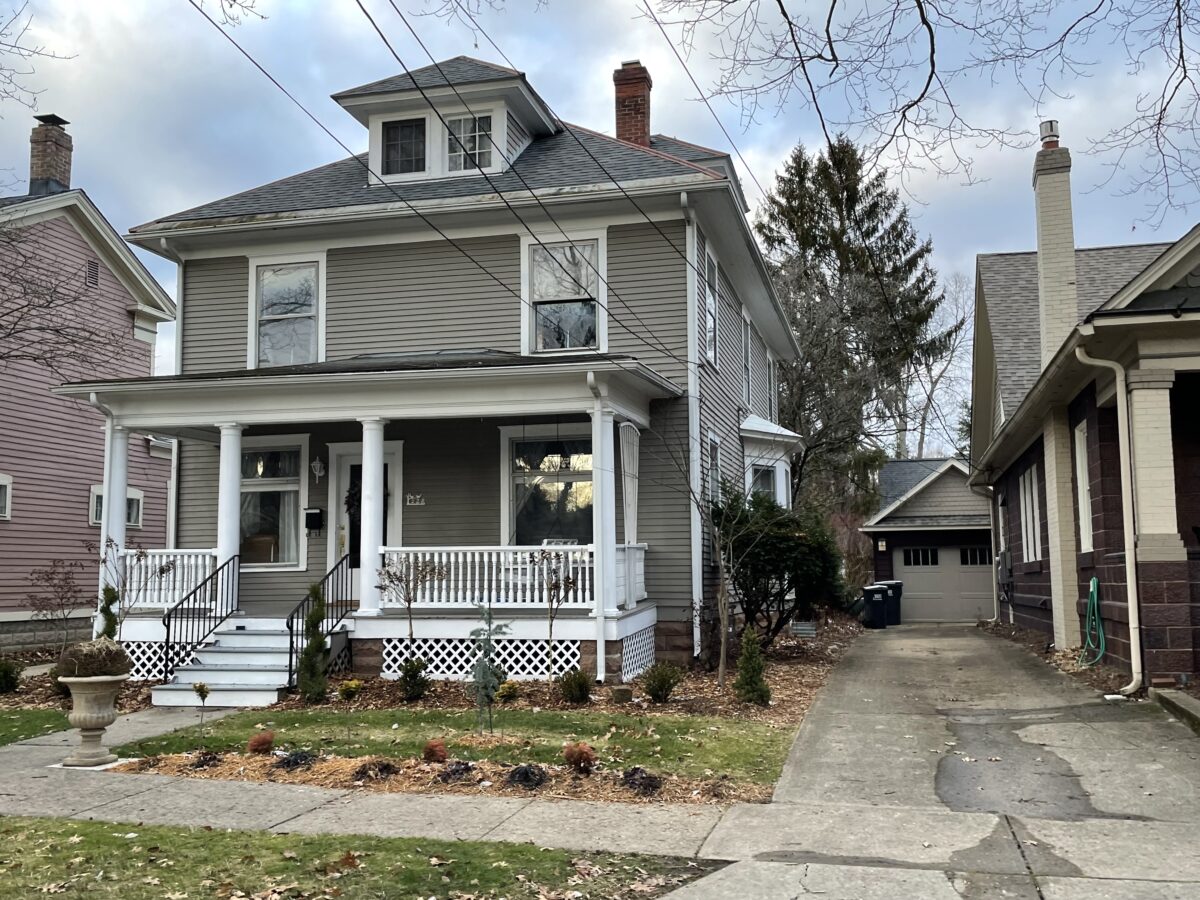When Granville’s Board of Zoning and Building Appeals permitted homeowners to turn their house on East Elm Street into a short-term rental property in one of the village’s historic districts last year, residents along Elm Street raised concerns.
Neighbors immediately appealed the short-term rental permit, granted in October 2023, to the Granville Village Council, concerned with how the presence of a temporary rental unit like an Airbnb or a Vrbo might affect the character of the neighborhood.
“We’ve all read and heard about formerly beautiful residential neighborhoods that have been turned into Airbnb ghettos by the conversion of former family residences into short-term rental properties,” neighbor Keith McWalter wrote to the BZBA in September. “There is no need to venture down that slippery slope.”
In a 6-1 vote Wednesday, Jan. 3, the Granville Village Council agreed with the neighbors, and determined the BZBA erred in issuing the permit in the first place. Council member Aaron Olbur was the lone no vote.
Ryan Hottle and Sarah Straley Hottle purchased the house in question – a century-old foursquare with three bedrooms and a large front porch – last summer, with the intention of moving in when their oldest son graduates from a Columbus high school in about three years.
The couple was interested in moving back to the village, and when the house at 228 E. Elm Street, directly next door to Ryan’s childhood home and where his parents continue to reside, came up for sale, they knew it was the right home for them.
“The timing [to purchase] may not have been perfect, but the allure of buying a home next to my childhood home, alongside my parents, Larry and Vee, was an opportunity too precious to let go,” Ryan wrote in a letter to neighbors on Elm Street. “Our 4-year-old-son, Bodhi, will be next door to his Mimi and Papa. The thought of him attending Granville Elementary in a few years, growing up surrounded by family and the same nurturing community that shaped me, is truly heartwarming.”
In the meantime, the couple intended to use the house as an Airbnb to help defray some of the costs of homeownership and maintenance, Ryan wrote, when the family wasn’t using it during holidays. His parents and Sarah would serve as “vigilant co-hosts” of the property to ensure “guests and neighbors coexist harmoniously.”
Ryan manages a couple of other short-term rental properties around Ohio, and planned to manage this property as one alongside his parents until the family could move in.
But because Ryan and Sarah aren’t full-time Licking County residents, they technically didn’t meet the requirements established in the village code for short-term rentals, even with Ryan’s parents close by.
Across the country, city and state officials have adopted legislation and codes designed to rein in short-term rentals, particularly as investors scoop up available properties in desirable areas. And as Licking County’s population grows ahead of the Intel boom, council members said they want to protect Granville’s existing residential neighborhoods for residents decades from now.
When the Hottles had a permit in hand, it made the Elm Street house one of a few short-term rentals in district limits, capped at 15 by legislation the council approved in 2020, and updated in 2022. Now, the council might revisit the short-term rental code.
“We should consider the future,” councilmember Laura Mickelson said Wednesday. “As Intel is moving in, and people are moving in, and houses become more expensive, what is our priority as far as retaining our neighborhood feel around our village? I think it’s important to think about … if we go back to the table on short-term rentals and make some adjustments to the code.”
At the heart of the issue, council members agreed the existing code, particularly as it relates to the definition of a “host” for a short-term rental, was vague.
Even so, the Hottle’s application for the short-term rental didn’t satisfy other existing code requirements for the village, Mayor Melissa Hartfield said.
“I can’t say … that the proposed use will not significantly diminish or impair the established property values, [or] the proposed use will not be detrimental or disturbing to existing neighborhood values,” Hartfield said during deliberations Wednesday. “It doesn’t satisfy, in my opinion, the requirements.”
Part of the challenge, council members agreed, was density of short-term rentals in village districts. Across the Village Business District, the Village Residential District, the Suburban Residential District and the Planned Development Districts, short-term rentals cannot exceed 5% of the total number of residential properties, per village code.
Though the Elm Street property wouldn’t have pushed the district over the 5% cap, it shares the block with a long-standing bed-and-breakfast, grandfathered into the 2020 short-term rental code, as well as a seven-unit apartment building. And in that same neighborhood, other short-term rentals already exist, as do two historic inns.
“Fifteen isn’t that many in the whole scheme of the village,” Mickelson said during the meeting. “However, when you start seeing them all in one or two blocks, that’s where it starts to become concerning to me.”
Wednesday’s hearing was not the first time the council considered the conditional use permit, initially introduced during an early December meeting and discussed during the Dec. 20, 2023, appeal hearing. At each meeting, Ryan, Larry and Vee Hottle attended to answer questions and offer testimony about their property, as did neighbors.
The Hottles could not be reached for comment after the Jan. 3 meeting and declined to comment to The Reporting Project after the December meetings.
Julia Lerner writes for TheReportingProject.org, the nonprofit news organization of Denison University’s Journalism program, which is sponsored in part by the Mellon Foundation and donations from readers. Sign up for The Reporting Project newsletter here.

